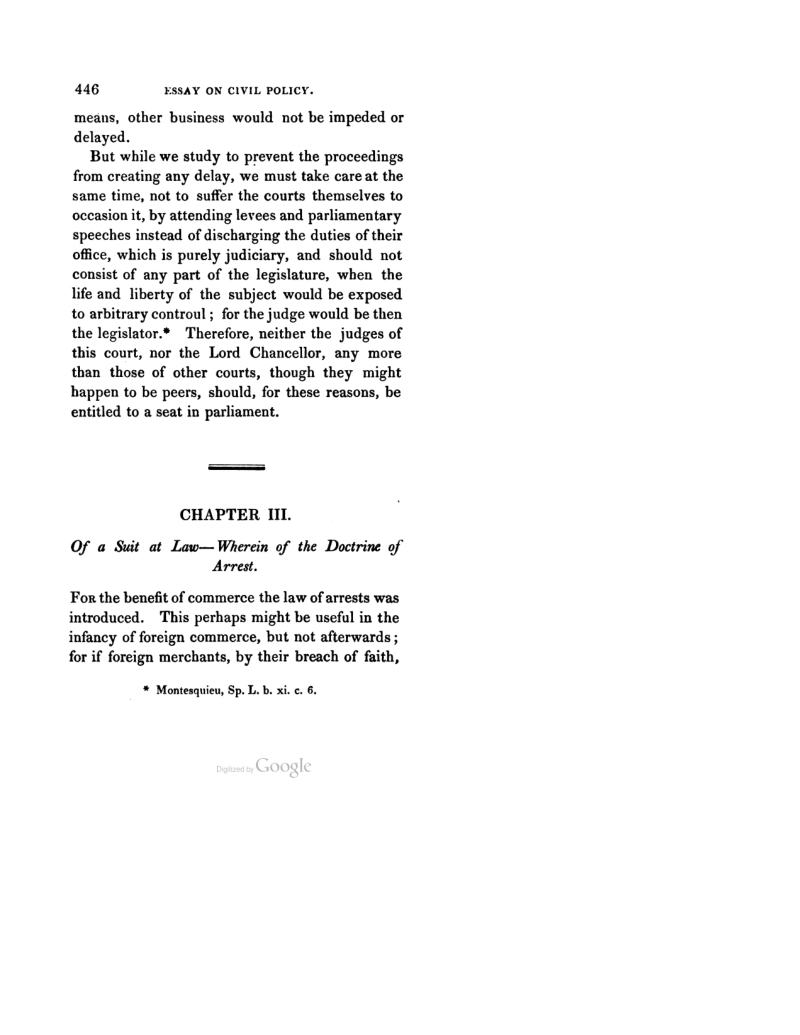Charles Putt discusses how some debtors will take "leg bail" to avoid a legal confrontation with their creditors.
- Type
- Book
- Source
- Charles Putt Non-LDS
- Hearsay
- Direct
- Reference
Charles Putt, Essay on Civil Policy, or The Science of Legislation; Comprising the Origin and Nature of Government, Religion, Laws, Population, Wealth, and Happiness with a Review of the Practice of the English Law, and Hints for Its Improvement (London: William Pickering, 1830), 446-47
- Scribe/Publisher
- William Pickering
- People
- Charles Putt
- Audience
- Reading Public
- Transcription
For the benefit of commerce the law of arrests was introduced. This perhaps might be useful in the infancy of foreign commerce, but not afterwards; for if foreign merchants, by their breach of faith, had made it necessary to resort to this remedy, their credit would have been soon lost, since credit is never given to those who never pay. And with respect to the home trade or commerce, it must always prove unproductive, because if the debtor's effects are not sufficient to pay, it is certain that his person cannot. To which it is restored by the partisans of bum bailiffs and sheriffs' officers, that it is intended only to oblige them to find security. But what security? that he will not abscond; for no other can be meant, since if payment be forced against his circumstance, this must be at the expense of his other creditors, and thus the only benefit of such a law is to favor one creditor at the expense of another, and enable Peter to rob Paul. If he has absconding in contemplation, he is quite as well aware as his creditor of the remedy by arrest, and nine times in ten will prove too vigilant, and give him only leg bail. But if the creditor arrest him, he cannot obtain payment without effects, and where the defendant is possessed of them, payment can be enforced without the arrest, and consequently the only advantage, instead of benefit, is, to compel him to account, under the Insolvent Act, or a commission of bankrupt.
- Citations in Mormonr Qnas
The B. H. Roberts Foundation is not owned by, operated by, or affiliated with the Church of Jesus Christ of Latter-day Saints.

